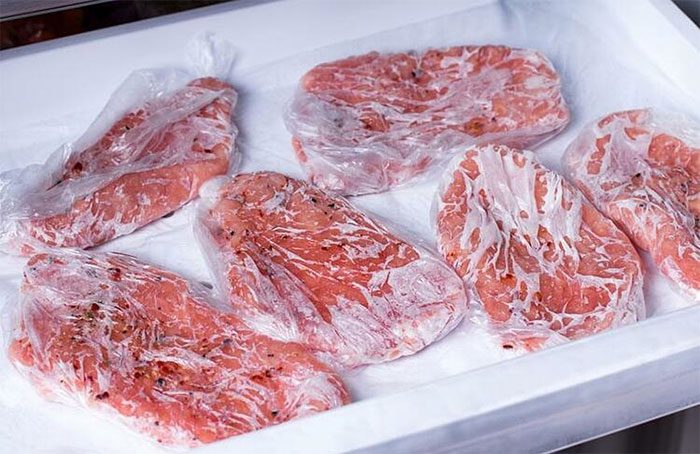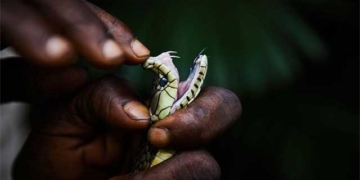Some families have leftover meat after Tet and store it in the freezer, but some people believe that eating meat stored for a long time in the refrigerator poses a cancer risk. Is this true?
Having leftover pork and storing it in the freezer after Tet is a common situation for many families. Many claims that meat stored in the refrigerator for an extended period can produce toxins that cause cancer are inaccurate. However, the longer meat is stored, the more it loses its nutritional value, increasing the risk of toxin production, which can be harmful to health.

The claim that meat stored in the refrigerator for a long time can produce toxins that lead to cancer is inaccurate.
The maximum shelf life of meat in the freezer depends on various factors, including the type of meat and temperature. Among these, temperature is the most crucial factor. If the temperature is too high, the meat can spoil quickly, as this creates a favorable environment for bacteria to thrive and develop. Conversely, if meat is stored in the refrigerator at too low a temperature, it can freeze, lose moisture, and even undergo quality changes.
In general, meat packaged for export is stored in cold warehouses at very low temperatures, around -50 degrees Celsius, and can last for up to six months. For household refrigerators, the freezer temperature is typically between -12 and -18 degrees Celsius, allowing meat to be stored for about a month. Therefore, if your family keeps meat in the freezer for a month, it can still be safe to thaw and eat.
However, if meat is kept in the refrigerator for too long, microorganisms will adapt, operate, and develop slowly, leading to toxin production and various health issues. Additionally, any food item, not just meat, that is stored in the refrigerator for too long will undergo changes in its composition. Even if the meat shows no signs of spoilage, it will not taste as good as when it was fresh. It is best to consume it sooner rather than later and avoid long storage periods.
Associate Professor Dr. Nguyễn Duy Thịnh
Former staff member at the Institute of Biotechnology and Food Technology, Hanoi University of Science and Technology




















































